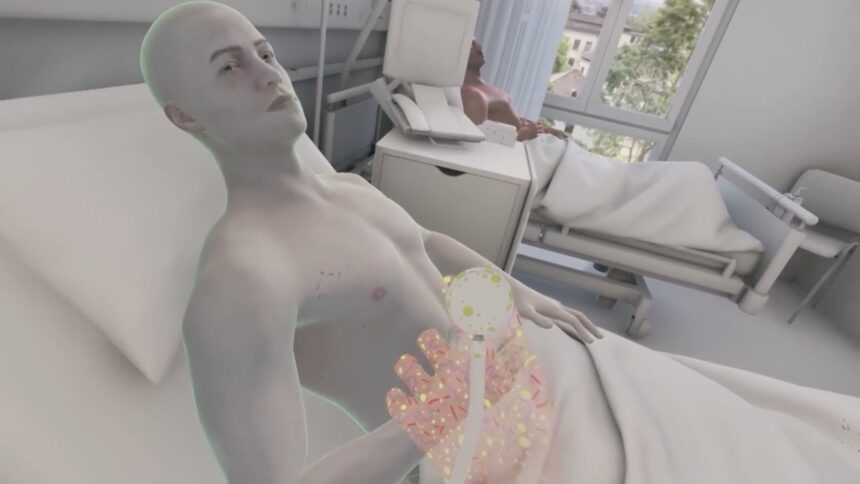Dangerous hospital germs become visible in VR

A Swiss clinic is training staff in virtual reality to raise awareness of hand hygiene.
Since the beginning of the pandemic, hand hygiene has taken on a special significance in society. Disinfection dispensers have been placed in every public facility and the demand for hygiene products is increasing. The majority of people are now paying more attention to clean hands.
In hospitals, hand hygiene was an immensely important factor even before Corona, to prevent germs from being transmitted to vulnerable patients. The University Hospital Zurich is now offering special VR training to raise awareness for better hand hygiene.
VR training for clean hands
Participants go through various scenarios from everyday hospital life in virtual reality, in which they have to perform different tasks. They enter a virtual hospital room, have to listen to a patient with a stethoscope, greet another or take notes.
The VR app continuously checks whether the patient is properly sterilized between actions. If the user touches objects during treatment or forgets to disinfect between two patients, the program sounds an alarm.
Virtual reality makes germs visible
For nurses, disinfection is a standard ritual before every treatment. Nevertheless, mistakes can happen in the hectic daily routine. Even a quick reach for the ringing smartphone during treatment can lead to dangerous germs being transferred to patients. The VR training is intended to sharpen the senses, especially for the small manual actions in between.

You can almost feel these virtual germs on your real hand because they look so nasty. In VR, germs become visible to nurses for the first time. | Image: TeleBärn / Ateo
Martin Ringer, nursing expert for infectious diseases and hospital hygiene at the University Hospital Zurich, is fascinated by the possibilities of VR. Although nurses are warned repeatedly about the transmission of germs when dealing with patients, the danger is invisible in practice. In virtual reality, the infection process becomes visible for the first time.
Lauren Clack of the Institute for Healthcare Implementation Science sees another benefit of VR training: the technology sparks participants' curiosity. They have fun trying it out, and the training doesn't become a chore. At Zurich University Hospital, the training has been a success. In the future, all employees and students with patient contact will be trained in VR.
Note: Links to online stores in articles can be so-called affiliate links. If you buy through this link, MIXED receives a commission from the provider. For you the price does not change.